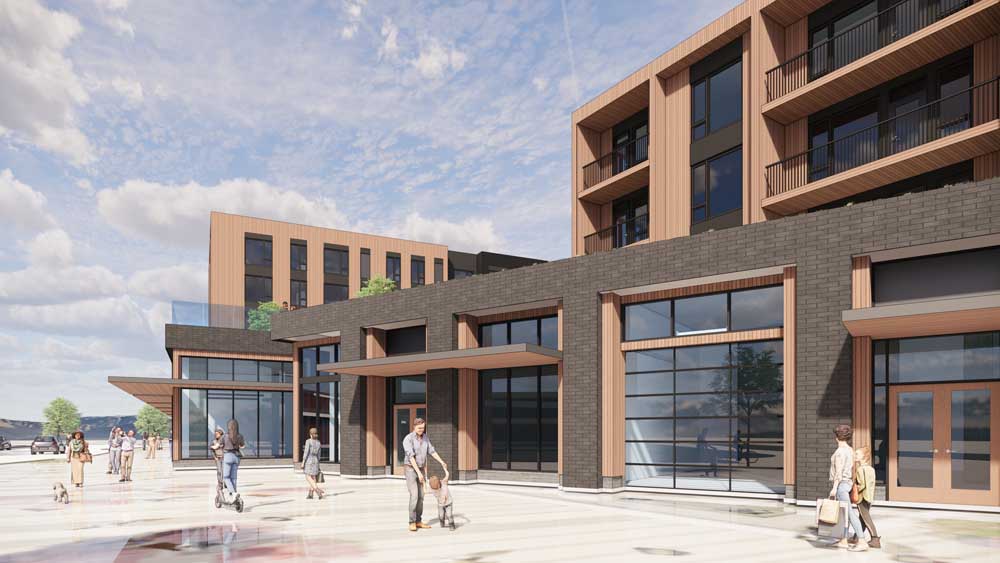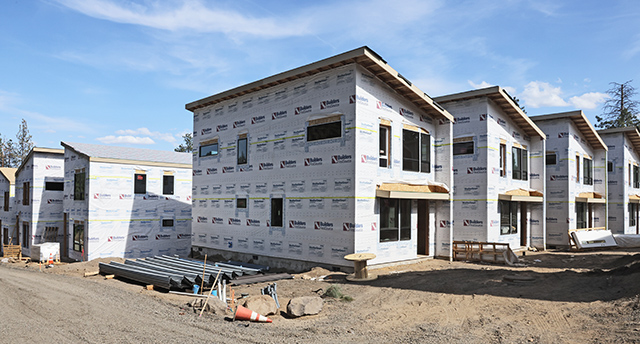Med students get hand-on experience working with uninsured patients
Published 12:00 am Thursday, February 26, 2015

- Naseem Miller / Orlando (Florida) SentinelAt KNIGHTS clinic, fourth-year medical student Glenn Gookin, left, shows second-year student Ross Russell how to examine a patient’s joints as pharmacy student Jennifer Orozco enters patient medication information into electronic medical records in Orlando, Florida.
ORLANDO — Every other Thursday night, University of Central Floria medical students don their white coats and practice what will one day be their real job.
They see patients, run labs and schedule appointments at Grace Medical Home, which sees Orange County working poor who have no insurance.
“Thank you so much for being patient with us and helping teach us, too,” fourth-year University of Central Florida medical student Glenn Gookin said to a 62-year-old uninsured patient as she seated herself on the exam table.
Beside him stood second-year student Ross Russell and third-year University of Florida pharmacy student Jennifer Orozco, and the three worked together to get a medical history of the patient and do a basic assessment before presenting the information to a volunteer physician who made the final diagnosis.
The three are among student volunteers who help run the KNIGHTS clinic, which stands for Keeping Neighbors in Good Health Through Service, a collaboration between Grace Medical Home, UCF College of Medicine and UF College of Pharmacy in Orlando.
The nighttime clinic just turned 2, and it gives students the opportunity to work in a medical home — a comprehensive, patient-centered, primary-care model — alongside family physicians and specialists.
“It allows the students very early to see patients,” said Dr. Marvin Hardy, medical director of Grace. “But it also teaches them how to take care of the underserved in the community. There’s no system for the uninsured, so (the students) have to follow through on a lot of things that a traditional doctor doesn’t have to, like coordinating imaging studies and free medication.”
The clinic is run by a board of second-year medical students, under the supervision of attending and volunteer physicians. Board members have designated yearlong duties at the clinic. They also draw from a list of nearly 200 volunteers that includes first- through fourth-year medical students in addition to pharmacy students to staff the clinic with about 20 people.
The clinic is funded by the Diebel Legacy Fund, which was established after local physician Dr. N. Donald Diebel was killed more than a decade ago when a tractor-trailer lost control on Florida’s Turnpike. Diebel and a few others had pulled over to help a newlywed couple out of their overturned car.
“If we can help one of these kids become more like him, that’s money well-spent,” said Peter Diebel, Donald Diebel’s brother.
Clinical interactions in medical school usually begin in the third year, so the KNIGHTS clinic gives first- and second-year students an early opportunity to interact with patients.
“My first experience here was in patient education, and we educated somebody to get a flu shot who didn’t want to get a flu shot. That was really incredible,” said second-year medical student Faith Villanueva as she oversaw the clinic’s lab operations.
For the faculty, the clinic is an opportunity to teach students the practical applications of what they learn in school.
“It gives them lots of self confidence and practice,” said Dr. Magdalena Pasarica, a UCF faculty adviser at the KNIGHTS clinic and associate professor of medicine.
“It helps that we’re here as faculty, because we know what they’re learning in class, and when they come here we know what to ask them. And when I go back to class, I know what they’re lacking from what I’ve seen, so I think it’s a very good back-and-forth.”
But for most it’s more than just a place to get a head start in practicing medicine.
“Both my parents don’t have insurance, so it’s important to me to give back to the medical community, because I know there are people out there who don’t have insurance,” said Ashley Brown, a second-year UCF medical student.
Gookin had another mission.
“If I help expose a future emergency-medicine physician to this, then he will be more sympathetic to this patient population when he’s working with them in the future. Or if a future cardiologist comes and volunteers here, they would be more willing to donate their service and their time to medically underserved patient population. To me, that’s the biggest value,” said Gookin, who is planning to become a family physician.







